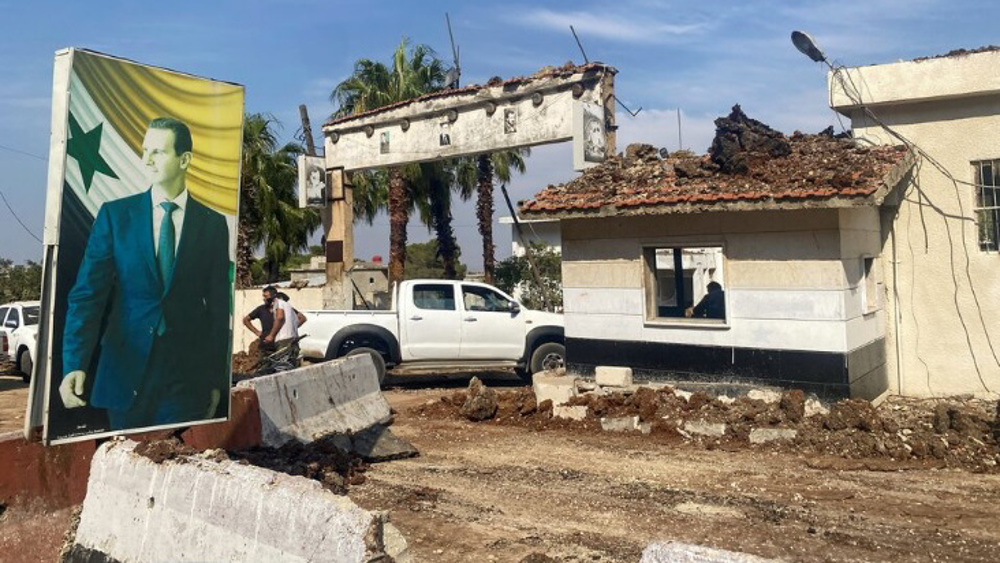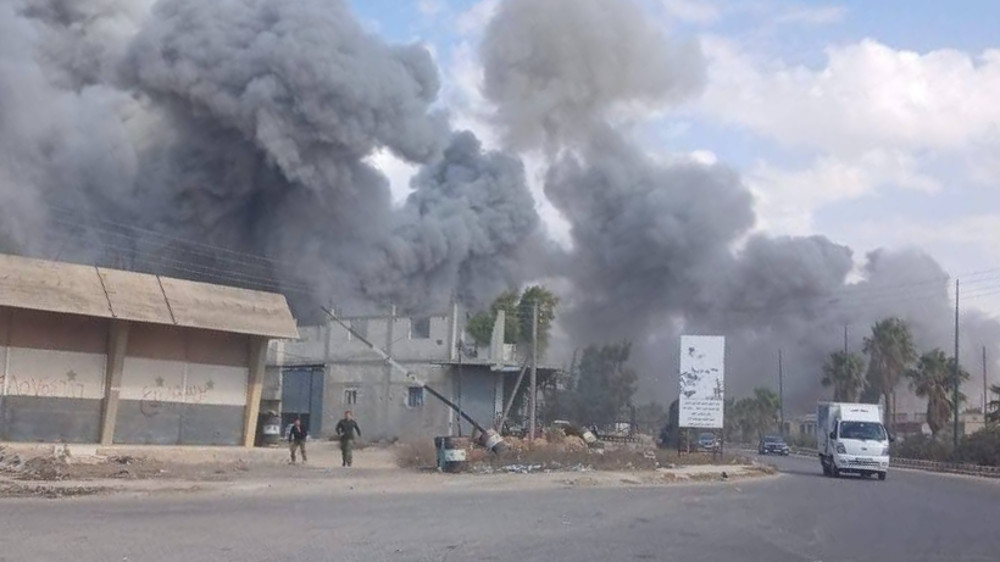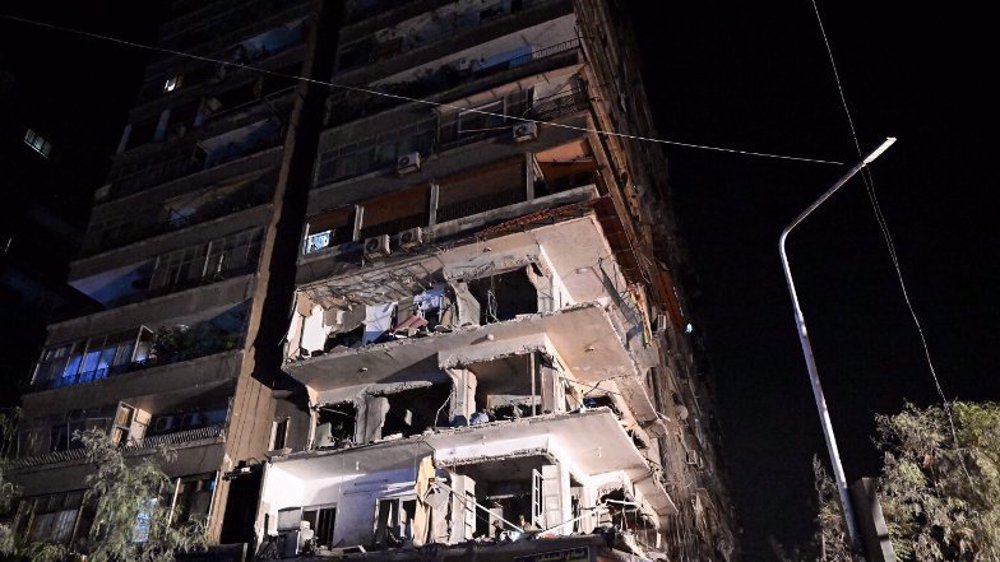Takfiri groups fail to unite against Syria government : Report
Major Takfiri groups fighting in Syria are fractured more than anytime as they are struggling to close ranks in the face of army advances on various fronts, a report says.
Representatives of al-Qaeda-linked al-Nusra Front and Ahrar al-Sham, a Salafist movement with close ties to Turkey, met with fellow militant groups recently but failed to forge a united front, Reuters reported.
According to the report, Abu Mohamad al-Golani, the head of al-Nusra Front, tried to convince other Takfiri groups to join forces with the al-Qaeda wing in Syria but the effort fell flat.
The militant leader even said he would change his group’s name if Ahrar al-Sham agreed to reunite with them, but stressed that he would not renounce ties with the al-Qaeda terror organization.
The two extremist groups had briefly formed an alliance against the Syrian government along with a number of other militants last year, but they later split.
During the tense atmosphere of the meeting, which was held around 10 days ago, Golani accused Ahrar of spearheading “the agenda of Ankara in order to be part of a future political deal to rule Syria,” the report said.
The leaders left without an agreement, with Nusra blaming Ahrar al-Sham for the failure.
A few days later, members of the two groups clashed in the towns of Salqin and Harem in Idlib province, near the border with Turkey. Several militants were killed on both sides.
Takfiri sources, including some from Ahrar al-Sham, say it is only a matter of time before another battle between the two erupts.
"They say the rift between them is getting deeper, although mediation continues," Reuters said.
"The situation is charged, the failure of initiatives could cause an explosion," said a Takfiri in Idlib who is close to the two groups.
"What happened just avoided all-out conflict, all-out battle. But it will be hard to tell what will happen in the future," he added.
The disarray among terrorist ranks is evident by their failure to send a representative to the ongoing peace talks in Geneva.
In Syria, the official Tishrin newspaper said the no-show by the opposition in Geneva "reflects the collective flight of terrorist groups backed by Saudi Arabia and Turkey from the political table, following their collapses on the battlefield."
"In light of their losses, the opposition abroad, especially in Riyadh, has chosen to run away" as a face-saving measure, it said in an editorial.
Turkish President Recep Tayyip Erdogan said the opposition was not attending the talks because Russia continued to bomb militant-held areas in Syria.
"The truth behind their decision not to join is unfortunately the fact that some promises were not fulfilled," he said in Istanbul.
"Russia's constant bombing of the opposition regions is causing serious distress within the opposition. For them to attend (Geneva) without a ceasefire is ... a betrayal for those who are at the front," he added.
The foreign-backed conflict in Syria has killed more than 260,000 people and forced millions from their homes since its onset in 2011.
Latest ballots polls show Harris, Trump tied as voting continues
UNRWA warns of humanitarian collapse in Gaza
'Hello my enemies': Lebanese journalist on Israeli threats and his resolve to continue
Outrage in France as MP proposes bill to ban criticism of Israel
VIDEO | The strategy of Hezbollah in war
Israeli military withdraws several brigades from southern Lebanon: Report
48-year-old Palestinian man serving 48 life terms completes 22 years in Israeli jails
From MKO to Tondar, how Germany became safe haven for anti-Iran terror groups















 This makes it easy to access the Press TV website
This makes it easy to access the Press TV website